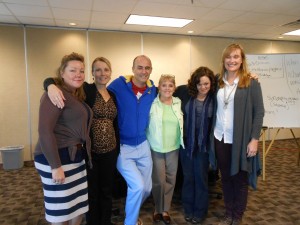ACOA is an anachronism for Adult Children of Alcoholics. Nowadays you can replace ‘Alcoholics’ for ‘Addicts’ to include children from families suffering from any addiction – the impact is the same.
Guilty fury, self-sufficiency and insecurity are core characteristics of this condition, developed in the child who grows up in a family where addiction is present. For ‘addiction’ in families, read ‘inconsistent parenting in a culture of persistent low self-esteem and blame, where the parent uses something outside of themselves to prop them up and it causes damage’. Addiction is NOT all about the manifestations, though this is where the attention most often falls, eg drinking or using drugs. Of course in these cases the damages are very clear. But that is not the extent of the addictive condition, simply the most visible.
I believe we need to wake up to the extensive reach addiction has into today’s society. It is a human condition out of whack. It is where emotions and behaviour pitch into the extremes, and more of you out there are addicts than I suspect would admit it. Active denial is fundamental in maintaining an addictive status quo. Denial is minimising, exaggerating, generalising, universalising…making what ‘is’ into something else so it can be overlooked, swept under the carpet. Examples of this are ‘Everybody does it’ ‘its not that bad’ ‘I only did it once’ etc etc.
At the risk of coming across like the anti fun squad (though those of you who know me will KNOW this is about as far from the truth as possible) the way we behave in this society as parents is fostering a culture of neglect, self sufficiency, arrogance, entitlement, grandiosity, low self esteem and self centredness in our children. For example we do not seem to encourage boundaries (life on life’s terms as opposed to life on the child’s terms) as so many parents are too busy so it suits them to leave the child to their own devices, or too afraid to meet their disapproval. Trouble is coming in the form of Adult Children of dysfunctional family environments and until we accept addiction in broader terms sustainable change can never happen.
So it will continue to get worse; we are more likely to continue to scapegoat at the fire-fighting end where addiction looks like drugs and alcohol, introducing measures to mitigate for damages. We are in danger of seeing addiction through these eyes and trying to control this out of control condition. Instead let us move our attention to the broader view, where addiction operates within families in the form of eg sex and love addiction, co-dependence, (childhood relational trauma, all grown up), gambling (maybe ‘fiscally successfully’), exercise, shopping…or better still to educate people around the core characteristics of expectations, isolation, resentment and blame. To wake someone up to the grandiosity of believing they always know best about somebody else; or to the well-oiled victim position that plays their family and friends invisibly like a master puppeteer, so that you feel sorry for them, adopting a position of what you think is compassion, but is actually judgment and enablement. I could go on.
It is frustrating when I talk to people of influence who still regard addiction as about drugs or alcohol, gambling or work. It is so much more, so deeply entrenched and we as a society are so very blind.
Please note recent article below by Clare Fallon, Sky News Reporter
The National Association for Children of Alcoholics receives more than 4,500 calls a year – many from under 18s who are struggling to cope.
Their youngest ever caller was a five-year-old girl whose alcohol-dependent mother had committed suicide in the bathroom.
Hilary Henriques, one of the founders of the charity, warns the recession has only made the situation worse with addicts drinking to cope with financial pressure and in turn struggling to fund their alcohol problem.
She said: “Alcoholics who drink don’t choose to drink. Drink is how they get through the day.”
Martin Williams is one of the alcoholic parents the charity has helped.
He describes how his relationship with alcohol became more important that his relationship with his two children.
“They stopped becoming the priority. The drink became the priority. And you try and juggle the two,” he said.
Now though, he has been off the drink for more than three years and says his children are getting their dad back – an improved, sober version.
The most recent figures show around one-fifth of children are living with someone drinking dangerous amounts of alcohol.
According to research, the impact of having an alcoholic parent can be lifelong, with significantly increased chances of developing mental health problems and eating disorders.
Children of alcoholics are also more likely to get into trouble with police and develop a drink problem themselves.
Rosey, 20, has now moved out of home and is studying at university.
While her flatmates enjoy a typical student lifestyle, she does not touch alcohol and says does not think she ever will.
Rosey’s father has been an alcoholic as long as she can remember.
She describes how she never invited school friends back home because she did not what them to meet her “slurring and rocking” dad.
She says she has given up thinking it’s her job to try to help him.
The charity Children of Addicted People and Parents said such situations are common.
Its founding director Emma Spiegler describes the situation faced by many youngsters as “a hell hole with no escape”.
But she insists with help and support children can come through it.
“Together we can help to break the silence, secrecy and stigma young people keep bottled up inside,” she said.
See also:
www.adultchildren.org www.drugfam.co.uk

